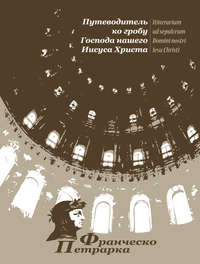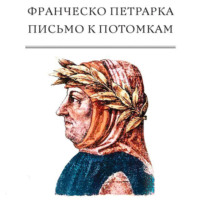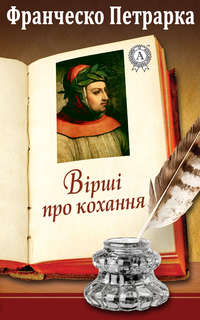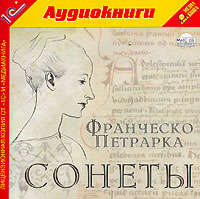 полная версия
полная версияThe Sonnets, Triumphs, and Other Poems of Petrarch
Petrarch's greatest obstacles to improvement arose from the scarcity of authors whom he wished to consult—for the manuscripts of the writers of the Augustan age were, at that time, so uncommon, that many could not be procured, and many more of them could not be purchased under the most extravagant price. This scarcity of books had checked the dawning light of literature. The zeal of our poet, however, surmounted all these obstacles, for he was indefatigable in collecting and copying many of the choicest manuscripts; and posterity is indebted to him for the possession of many valuable writings, which were in danger of being lost through the carelessness or ignorance of the possessors.
Petrarch could not but perceive the superiority of his own understanding and the brilliancy of his abilities. The modest humility which knows not its own worth is not wont to show itself in minds much above mediocrity; and to elevated geniuses this virtue is a stranger. Petrarch from his youthful age had an internal assurance that he should prove worthy of estimation and honours. Nevertheless, as he advanced in the field of science, he saw the prospect increase, Alps over Alps, and seemed to be lost amidst the immensity of objects before him. Hence the anticipation of immeasurable labours occasionally damped his application. But from this depression of spirits he was much relieved by the encouragement of John of Florence, one of the secretaries of the Pope, a man of learning and probity. He soon distinguished the extraordinary abilities of Petrarch; he directed him in his studies, and cheered up his ambition. Petrarch returned his affection with unbounded confidence. He entrusted him with all his foibles, his disgusts, and his uneasinesses. He says that he never conversed with him without finding himself more calm and composed, and more animated for study.
The superior sagacity of our poet, together with his pleasing manners, and his increasing reputation for knowledge, ensured to him the most flattering prospects of success. His conversation was courted by men of rank, and his acquaintance was sought by men of learning. It was at this time, 1326, that his merit procured him the friendship and patronage of James Colonna, who belonged to one of the most ancient and illustrious families of Italy.
"About the twenty-second year of my life," Petrarch writes to one of his friends, "I became acquainted with James Colonna. He had seen me whilst I resided at Bologna, and was prepossessed, as he was pleased to say, with my appearance. Upon his arrival at Avignon, he again saw me, when, having inquired minutely into the state of my affairs, he admitted me to his friendship. I cannot sufficiently describe the cheerfulness of his temper, his social disposition, his moderation in prosperity, his constancy in adversity. I speak not from report, but from my own experience. He was endowed with a persuasive and forcible eloquence. His conversation and letters displayed the amiableness of his sincere character. He gained the first place in my affections, which he ever afterwards retained."
Such is the portrait which our poet gives of James Colonna. A faithful and wise friend is among the most precious gifts of fortune; but, as friendships cannot wholly feed our affections, the heart of Petrarch, at this ardent age, was destined to be swayed by still tenderer feelings. He had nearly finished his twenty-third year without having ever seriously known the passion of love. In that year he first saw Laura. Concerning this lady, at one time, when no life of Petrarch had been yet written that was not crude and inaccurate, his biographers launched into the wildest speculations. One author considered her as an allegorical being; another discovered her to be a type of the Virgin Mary; another thought her an allegory of poetry and repentance. Some denied her even allegorical existence, and deemed her a mere phantom beauty, with which the poet had fallen in love, like Pygmalion with the work of his own creation. All these caprices about Laura's history have been long since dissipated, though the principal facts respecting her were never distinctly verified, till De Sade, her own descendant, wrote his memoirs of the Life of Petrarch.
Petrarch himself relates that in 1327, exactly at the first hour of the 6th of April, he first beheld Laura in the church of St. Clara of Avignon,1 where neither the sacredness of the place, nor the solemnity of the day, could prevent him from being smitten for life with human love. In that fatal hour he saw a lady, a little younger than himself2 in a green mantle sprinkled with violets, on which her golden hair fell plaited in tresses. She was distinguished from all others by her proud and delicate carriage. The impression which she made on his heart was sudden, yet it was never effaced.
Laura, descended from a family of ancient and noble extraction, was the daughter of Audibert de Noves, a Provençal nobleman, by his wife Esmessenda. She was born at Avignon, probably in 1308. She had a considerable fortune, and was married in 1325 to Hugh de Sade. The particulars of her life are little known, as Petrarch has left few traces of them in his letters; and it was still less likely that he should enter upon her personal history in his sonnets, which, as they were principally addressed to herself, made it unnecessary for him to inform her of what she already knew.
While many writers have erred in considering Petrarch's attachment as visionary, others, who have allowed the reality of his passion, have been mistaken in their opinion of its object. They allege that Petrarch was a happy lover, and that his mistress was accustomed to meet him at Vaucluse, and make him a full compensation for his fondness. No one at all acquainted with the life and writings of Petrarch will need to be told that this is an absurd fiction. Laura, a married woman, who bore ten children to a rather morose husband, could not have gone to meet him at Vaucluse without the most flagrant scandal. It is evident from his writings that she repudiated his passion whenever it threatened to exceed the limits of virtuous friendship. On one occasion, when he seemed to presume too far upon her favour, she said to him with severity, "I am not what you take me for." If his love had been successful, he would have said less about it.
Of the two persons in this love affair, I am more inclined to pity Laura than Petrarch. Independently of her personal charms, I cannot conceive Laura otherwise than as a kind-hearted, loveable woman, who could not well be supposed to be totally indifferent to the devotion of the most famous and fascinating man of his age. On the other hand, what was the penalty that she would have paid if she had encouraged his addresses as far as he would have carried them? Her disgrace, a stigma left on her family, and the loss of all that character which upholds a woman in her own estimation and in that of the world. I would not go so far as to say that she did not at times betray an anxiety to retain him under the spell of her fascination, as, for instance, when she is said to have cast her eyes to the ground in sadness when he announced his intention to leave Avignon; but still I should like to hear her own explanation before I condemned her. And, after all, she was only anxious for the continuance of attentions, respecting which she had made a fixed understanding that they should not exceed the bounds of innocence.
We have no distinct account how her husband regarded the homage of Petrarch to his wife—whether it flattered his vanity, or moved his wrath. As tradition gives him no very good character for temper, the latter supposition is the more probable. Every morning that he went out he might hear from some kind friend the praises of a new sonnet which Petrarch had written on his wife; and, when he came back to dinner, of course his good humour was not improved by the intelligence. He was in the habit of scolding her till she wept; he married seven months after her death, and, from all that is known of him, appears to have been a bad husband. I suspect that Laura paid dearly for her poet's idolatry.
No incidents of Petrarch's life have been transmitted to us for the first year or two after his attachment to Laura commenced. He seems to have continued at Avignon, prosecuting his studies and feeding his passion.
James Colonna, his friend and patron, was promoted in 1328 to the bishopric of Lombes in Gascony; and in the year 1330 he went from Avignon to take possession of his diocese, and invited Petrarch to accompany him to his residence. No invitation could be more acceptable to our poet: they set out at the end of March, 1330. In order to reach Lombes, it was necessary to cross the whole of Languedoc, and to pass through Montpelier, Narbonne, and Toulouse. Petrarch already knew Montpelier, where he had, or ought to have, studied the law for four years.
Full of enthusiasm for Rome, Petrarch was rejoiced to find at Narbonne the city which had been the first Roman colony planted among the Gauls. This colony had been formed entirely of Roman citizens, and, in order to reconcile them to their exile, the city was built like a little image of Rome. It had its capital, its baths, arches, and fountains; all which works were worthy of the Roman name. In passing through Narbonne, Petrarch discovered a number of ancient monuments and inscriptions.
Our travellers thence proceeded to Toulouse, where they passed several days. This city, which was known even before the foundation of Rome, is called, in some ancient Roman acts, "Roma Garumnæ." It was famous in the classical ages for cultivating literature. After the fall of the Roman empire, the successive incursions of the Visigoths, the Saracens, and the Normans, for a long time silenced the Muses at Toulouse; but they returned to their favourite haunt after ages of barbarism had passed away. De Sade says, that what is termed Provençal poetry was much more cultivated by the Languedocians than by the Provençals, properly so called. The city of Toulouse was considered as the principal seat of this earliest modern poetry, which was carried to perfection in the twelfth and thirteenth centuries, under the patronage of the Counts of Toulouse, particularly Raimond V., and his son, Raimond VI. Petrarch speaks with high praise of those poets in his Triumphs of Love. It has been alleged that he owed them this mark of his regard for their having been so useful to him in his Italian poetry; and Nostradamus even accuses him of having stolen much from them. But Tassoni, who understood the Provençal poets better than Nostradamus, defends him successfully from this absurd accusation.
Although Provençal poetry was a little on its decline since the days of the Dukes of Aquitaine and the Counts of Toulouse, it was still held in honour; and, when Petrarch arrived, the Floral games had been established at Toulouse during six years.3
Ere long, however, our travellers found less agreeable objects of curiosity, that formed a sad contrast with the chivalric manners, the floral games, and the gay poetry of southern France. Bishop Colonna and Petrarch had intended to remain for some time at Toulouse; but their sojourn was abridged by their horror at a tragic event4 in the principal monastery of the place. There lived in that monastery a young monk, named Augustin, who was expert in music, and accompanied the psalmody of the religious brothers with beautiful touches on the organ. The superior of the convent, relaxing its discipline, permitted Augustin frequently to mix with the world, in order to teach music, and to improve himself in the art. The young monk was in the habit of familiarly visiting the house of a respectable citizen: he was frequently in the society of his daughter, and, by the express encouragement of her father, undertook to exercise her in the practice of music. Another young man, who was in love with the girl, grew jealous of the monk, who was allowed to converse so familiarly with her, whilst he, her lay admirer, could only have stolen glimpses of her as she passed to church or to public spectacles. He set about the ruin of his supposed rival with cunning atrocity; and, finding that the young woman was infirm in health, suborned a physician, as worthless as himself, to declare that she was pregnant. Her credulous father, without inquiring whether the intelligence was true or false, went to the superior of the convent, and accused Augustin, who, though thunderstruck at the accusation, denied it firmly, and defended himself intrepidly. But the superior was deaf to his plea of innocence, and ordered him to be shut up in his cell, that he might await his punishment. Thither the poor young man was conducted, and threw himself on his bed in a state of horror.
The superior and the elders among the friars thought it a meet fate for the accused that he should be buried alive in a subterranean dungeon, after receiving the terrific sentence of "Vade in pace." At the end of several days the victim dashed out his brains against the walls of his sepulchre. Bishop Colonna, who, it would appear, had no power to oppose this hideous transaction, when he was informed of it, determined to leave the place immediately; and Petrarch in his indignation exclaimed—
"Heu! fuge crudeles terras, fuge littus avarum."—Virg.
On the 26th of May, 1330, the Bishop of Lombes and Petrarch quitted Toulouse, and arrived at the mansion of the diocese. Lombes—in Latin, Lombarium—lies at the foot of the Pyrenees, only eight leagues from Toulouse. It is small and ill-built, and offers no allurement to the curiosity of the traveller. Till lately it had been a simple abbey of the Augustine monks. The whole of the clergy of the little city, singing psalms, issued out of Lombes to meet their new pastor, who, under a rich canopy, was conducted to the principal church, and there, in his episcopal robes, blessed the people, and delivered an eloquent discourse. Petrarch beheld with admiration the dignified behaviour of the youthful prelate. James Colonna, though accustomed to the wealth and luxury of Rome, came to the Pyrenean rocks with a pleased countenance. "His aspect," says Petrarch, "made it seem as if Italy had been transported into Gascony." Nothing is more beautiful than the patient endurance of our destiny; yet there are many priests who would suffer translation to a well-paid, though mountainous bishopric, with patience and piety.
The vicinity of the Pyrenees renders the climate of Lombes very severe; and the character and conversation of the inhabitants were scarcely more genial than their climate. But Petrarch found in the bishop's abode friends who consoled him in this exile among the Lombesians. Two young and familiar inmates of the Bishop's house attracted and returned his attachment. The first of these was Lello di Stefani, a youth of a noble and ancient family in Rome, long attached to the Colonnas. Lello's gifted understanding was improved by study; so Petrarch tells us; and he could have been no ordinary man whom our accomplished poet so highly valued. In his youth he had quitted his studies for the profession of arms; but the return of peace restored him to his literary pursuits. Such was the attachment between Petrarch and Lello, that Petrarch gave him the name of Lælius, the most attached companion of Scipio. The other friend to whom Petrarch attached himself in the house of James Colonna was a young German, extremely accomplished in music. De Sade says that his name was Louis, without mentioning his cognomen. He was a native of Ham, near Bois le Duc, on the left bank of the Rhine between Brabant and Holland. Petrarch, with his Italian prejudices, regarded him as a barbarian by birth; but he was so fascinated by his serene temper and strong judgment, that he singled him out to be the chief of all his friends, and gave him the name of Socrates, noting him as an example that Nature can sometimes produce geniuses in the most unpropitious regions.
After having passed the summer of 1330 at Lombes, the Bishop returned to Avignon, in order to meet his father, the elder Stefano Colonna, and his brother the Cardinal.
The Colonnas were a family of the first distinction in modern Italy. They had been exceedingly powerful during the popedom of Boniface VIII., through the talents of the late Cardinal James Colonna, brother of the famous old Stefano, so well known to Petrarch, and whom he used to call a phœnix sprung up from the ashes of Rome. Their house possessed also an influential public character in the Cardinal Pietro, brother of the younger Stefano. They were formidable from the territories and castles which they possessed, and by their alliance and friendship with Charles, King of Naples. The power of the Colonna family became offensive to Boniface, who, besides, hated the two Cardinals for having opposed the renunciation of Celestine V., which Boniface had fraudulently obtained. Boniface procured a crusade against them. They were beaten, expelled from their castles, and almost exterminated; they implored peace, but in vain; they were driven from Rome, and obliged to seek refuge, some in Sicily and others in France. During the time of their exile, Boniface proclaimed it a capital crime to give shelter to any of them.
The Colonnas finally returned to their dignities and property, and afterwards made successful war against the house of their rivals, the Orsini.
John Colonna, the Cardinal, brother of the Bishop of Lombes, and son of old Stefano, was one of the very ablest men at the papal court. He insisted on our poet taking up his abode in his own palace at Avignon. "What good fortune was this for me!" says Petrarch. "This great man never made me feel that he was my superior in station. He was like a father or an indulgent brother; and I lived in his house as if it had been my own." At a subsequent period, we find him on somewhat cooler terms with John Colonna, and complaining that his domestic dependence had, by length of time, become wearisome to him. But great allowance is to be made for such apparent inconsistencies in human attachment. At different times our feelings and language on any subject may be different without being insincere. The truth seems to be that Petrarch looked forward to the friendship of the Colonnas for promotion, which he either received scantily, or not at all; so it is little marvellous if he should have at last felt the tedium of patronage.
For the present, however, this home was completely to Petrarch's taste. It was the rendezvous of all strangers distinguished by their knowledge and talents, whom the papal court attracted to Avignon, which was now the great centre of all political negotiations.
This assemblage of the learned had a powerful influence on Petrarch's fine imagination. He had been engaged for some time in the perusal of Livy, and his enthusiasm for ancient Rome was heightened, if possible, by the conversation of old Stefano Colonna, who dwelt on no subject with so much interest as on the temples and palaces of the ancient city, majestic even in their ruins.
During the bitter persecution raised against his family by Boniface VIII., Stefano Colonna had been the chief object of the Pope's implacable resentment. Though oppressed by the most adverse circumstances, his estates confiscated, his palaces levelled with the ground, and himself driven into exile, the majesty of his appearance, and the magnanimity of his character, attracted the respect of strangers wherever he went. He had the air of a sovereign prince rather than of an exile, and commanded more regard than monarchs in the height of their ostentation.
In the picture of his times, Stefano makes a noble and commanding figure. If the reader, however, happens to search into that period of Italian history, he will find many facts to cool the romance of his imagination respecting all the Colonna family. They were, in plain truth, an oppressive aristocratic family. The portion of Italy which they and their tyrannical rivals possessed was infamously governed. The highways were rendered impassable by banditti, who were in the pay of contesting feudal lords; and life and property were everywhere insecure.
Stefano, nevertheless, seems to have been a man formed for better times. He improved in the school of misfortune—the serenity of his temper remained unclouded by adversity, and his faculties unimpaired by age.
Among the illustrious strangers who came to Avignon at this time was our countryman, Richard de Bury, then accounted the most learned man of England. He arrived at Avignon in 1331, having been sent to the Pope by Edward III. De Sade conceives that the object of his embassy was to justify his sovereign before the Pontiff for having confined the Queen-mother in the castle of Risings, and for having caused her favourite, Roger de Mortimer, to be hanged. It was a matter of course that so illustrious a stranger as Richard de Bury should be received with distinction by Cardinal Colonna. Petrarch eagerly seized the opportunity of forming his acquaintance, confident that De Bury could give him valuable information on many points of geography and history. They had several conversations. Petrarch tells us that he entreated the learned Englishman to make him acquainted with the true situation of the isle of Thule, of which the ancients speak with much uncertainty, but which their best geographers place at the distance of some days' navigation from the north of England. De Bury was, in all probability, puzzled with the question, though he did not like to confess his ignorance. He excused himself by promising to inquire into the subject as soon as he should get back to his books in England, and to write to him the best information he could afford. It does not appear, however, that he performed his promise.
De Bury's stay at the court of Avignon was very short. King Edward, it is true, sent him a second time to the Pope, two years afterwards, on important business. The seeds of discord between France and England began to germinate strongly, and that circumstance probably occasioned De Bury's second mission. Unfortunately, however, Petrarch could not avail himself of his return so as to have further interviews with the English scholar. Petrarch wrote repeatedly to De Bury for his promised explanations respecting Thule; but, whether our countryman had found nothing in his library to satisfy his inquiries, or was prevented by his public occupations, there is no appearance of his having ever answered Petrarch's letters.
Stephano Colonna the younger had brought with him to Avignon his son Agapito, who was destined for the church, that he might be educated under the eyes of the Cardinal and the Bishop, who were his uncles. These two prelates joined with their father in entreating Petrarch to undertake the superintendence of Agapito's studies. Our poet, avaricious of his time, and jealous of his independence, was at first reluctant to undertake the charge; but, from his attachment to the family, at last accepted it. De Sade tells us that Petrarch was not successful in the young man's education; and, from a natural partiality for the hero of his biography, lays the blame on his pupil. At the same time he acknowledges that a man with poetry in his head and love in his heart was not the most proper mentor in the world for a youth who was to be educated for the church. At this time, Petrarch's passion for Laura continued to haunt his peace with incessant violence. She had received him at first with good-humour and affability; but it was only while he set strict bounds to the expression of his attachment. He had not, however, sufficient self-command to comply with these terms. His constant assiduities, his eyes continually riveted upon her, and the wildness of his looks, convinced her of his inordinate attachment; her virtue took alarm; she retired whenever he approached her, and even covered her face with a veil whilst he was present, nor would she condescend to the slightest action or look that might seem to countenance his passion.
Petrarch complains of these severities in many of his melancholy sonnets. Meanwhile, if fame could have been a balm to love, he might have been happy. His reputation as a poet was increasing, and his compositions were read with universal approbation.
The next interesting event in our poet's life was a larger course of travels, which he took through the north of France, through Flanders, Brabant, and a part of Germany, subsequently to his tour in Languedoc. Petrarch mentions that he undertook this journey about the twenty-fifth year of his age. He was prompted to travel not only by his curiosity to observe men and manners, by his desire of seeing monuments of antiquity, and his hopes of discovering the MSS. of ancient authors, but also, we may believe, by his wish, if it were possible, to escape from himself, and to forget Laura.









